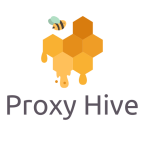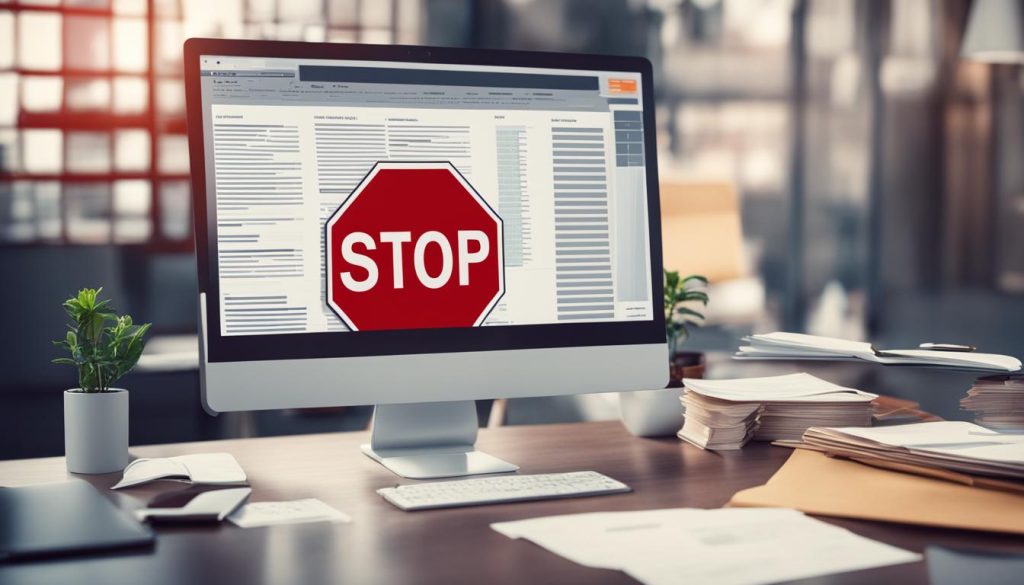Web scraping has become a common practice in today’s digital landscape, offering businesses and individuals access to valuable data. However, the legality of web scraping is a complex and often debated topic. To ensure compliance and avoid legal issues, it is essential to understand the legal implications of web scraping with proxies.
Web scraping legality is determined by various factors, including the type of data being scraped, its intended use, and the method of extraction. Personal data and copyrighted data present significant legal challenges, as they are protected by privacy laws and copyright infringement regulations. Scraping personal data without consent or scraping copyrighted content without permission can lead to legal consequences.
Using proxies plays a crucial role in ensuring web scraping compliance. Proxies allow web scrapers to mask their IP addresses and establish secure connections when accessing websites for scraping purposes. By utilizing proxies, web scrapers can avoid detection, minimize the risk of violating website terms and conditions, and comply with legal requirements.
It is important for web scrapers to be aware of the legal landscape in their specific jurisdiction and seek legal advice if unsure about the legality of their scraping activities. By understanding the legal implications and incorporating proxy services into web scraping practices, web scrapers can navigate the legal challenges associated with web scraping and operate within the bounds of the law.
Key Takeaways:
- Web scraping legality is determined by factors such as data type, intended use, and extraction method.
- Personal data and copyrighted data pose legal challenges and require consent or permission for scraping.
- Using proxies can help web scrapers maintain anonymity and establish secure connections.
- Understanding the legal landscape in specific jurisdictions is crucial for web scrapers.
- Seeking legal advice is advisable when uncertain about the legality of web scraping activities.
Understanding the HiQ vs LinkedIn Ruling and its Impact on Web Scraping
The legal landscape of web scraping has been significantly influenced by the hiQ vs LinkedIn court case, which shed light on the challenges surrounding the practice. In this case, hiQ Labs, a data analytics company, scraped publicly available data from LinkedIn to create employment profiles. However, LinkedIn argued that this scraping violated the Computer Fraud and Abuse Act (CFAA).
The Ninth Circuit, however, ruled in favor of hiQ Labs, stating that scraping publicly available web data does not constitute a violation of the CFAA. This landmark ruling clarified that accessing and scraping data that is freely available to the public is not considered hacking or unauthorized access. As a result, scraping such data is generally deemed legal.
It is important to note that the hiQ vs LinkedIn ruling may not apply universally. Different jurisdictions and regulations, such as the General Data Protection Regulation (GDPR) in the European Union, may have varying interpretations of web scraping legality. Web scrapers should therefore be aware of the legal landscape in their specific jurisdiction and consider the implications of court rulings on their scraping practices.
The hiQ vs LinkedIn ruling has contributed to a clearer understanding of the legal boundaries surrounding web scraping. However, web scrapers should remain vigilant and stay informed about the ever-evolving web scraping regulations in their respective regions.
Table: Key Points from the hiQ vs LinkedIn Ruling
| Key Points | Impact on Web Scraping |
|---|---|
| Scraping publicly available data | Generally considered legal |
| Accessing and scraping data behind login requirements | May infringe upon terms and conditions of the website |
| Jurisdiction-specific regulations | May have different interpretations of web scraping legality |
The Role of Proxy Services in Ensuring Legal Web Scraping
As web scraping regulations evolve, the use of proxy services has become increasingly important in ensuring legal compliance. Proxy services allow web scrapers to mask their IP addresses and establish a secure connection when accessing websites for scraping purposes. By using proxies, web scrapers can avoid being detected or blocked by websites and minimize the risk of violating terms of service or infringing upon website policies. Proxies also enable location-based scraping, offering more flexibility for web scrapers operating in different jurisdictions with varying legal requirements.
Web scraping with proxies presents a myriad of legal implications that web scrapers must navigate. Understanding the legality of web scraping requires consideration of factors such as the type of data being scraped, its intended use, and the method of extraction. Personal data and copyrighted data pose legal challenges, with privacy laws and copyright infringement regulations in place to protect these types of data.
“Using proxies can enhance web scrapers’ legal compliance and mitigate the legal challenges associated with web scraping.”
It is crucial for web scrapers to choose a reputable proxy service provider and adhere to the terms and conditions of both the proxy service and the target website. By incorporating proxy services into their web scraping practices, web scrapers can enhance their legal compliance and mitigate the legal challenges associated with web scraping.
| Benefits of Proxy Services for Legal Web Scraping |
|---|
| 1. Anonymity: Proxy services allow web scrapers to mask their IP addresses, making it difficult for websites to track their activities. |
| 2. Security: Proxies establish a secure connection between the web scraper and the target website, ensuring data integrity and protecting against potential security risks. |
| 3. Compliance: By using proxies, web scrapers can comply with the terms and conditions set by websites, minimizing the risk of violating legal regulations or policies. |
| 4. Location flexibility: Proxies enable web scrapers to scrape data from different jurisdictions while adhering to the legal requirements specific to each jurisdiction. |
Best Practices for Web Scrapers Using Proxy Services
- Choose a reputable proxy service provider that offers reliable and secure connections.
- Ensure that the proxy service provider has a large pool of IP addresses to provide optimal anonymity.
- Understand and adhere to the terms and conditions set by both the proxy service provider and the target website.
- Regularly monitor and update proxy configurations to ensure uninterrupted web scraping.
- Stay informed about changes in web scraping regulations and adjust scraping practices accordingly.
By following these best practices and leveraging the benefits of proxy services, web scrapers can navigate the legal challenges associated with web scraping and ensure compliance with the evolving web scraping regulations.
Conclusion
Understanding the legal implications of web scraping is crucial for web scrapers to navigate the complex landscape of regulations and avoid potential legal challenges. The type of data being scraped, its intended use, and the method of extraction all play a significant role in determining the legality of web scraping activities.
Scraping personal data and copyrighted data poses legal challenges, as privacy laws and copyright infringement regulations protect these types of information. It is essential for web scrapers to obtain consent for scraping personal data and seek permission for scraping copyrighted materials to ensure compliance with applicable laws.
The hiQ vs LinkedIn ruling clarified that scraping publicly available web data is generally legal and does not violate the Computer Fraud and Abuse Act (CFAA). However, it is important to consider jurisdiction-specific regulations and interpretations, as different regions may have varying legal requirements for web scraping.
Proxy services play a vital role in ensuring legal web scraping by providing anonymity and secure connections for web scrapers. By utilizing reputable proxy services, web scrapers can minimize the risk of violating terms of service, avoid detection or blocked access, and enhance their overall legal compliance.
Practicing legal and ethical web scraping not only helps web scrapers avoid legal issues but also contributes to a more transparent and compliant web scraping ecosystem. By staying informed about web scraping regulations, adhering to legal requirements, and utilizing proxy services responsibly, web scrapers can protect their reputation and operate within the boundaries of the law.
FAQ
Is web scraping legal?
The legality of web scraping depends on several factors, including the type of data being scraped, its intended use, and the method of extraction. Personal data and copyrighted data present legal challenges, while scraping publicly available data is generally considered legal. However, it is important to be aware of jurisdiction-specific regulations and interpretations.
What are the legal challenges in web scraping?
Web scraping raises legal questions regarding privacy laws, copyright infringement, and compliance with website terms and conditions. Personal data, such as names and email addresses, is protected by privacy laws and requires consent to be scraped. Copyrighted data, including articles and images, can be subject to copyright infringement if scraped without permission. Accessing data behind login requirements may also infringe upon website policies.
What was the hiQ vs LinkedIn ruling and its impact on web scraping?
In the hiQ vs LinkedIn case, hiQ Labs scraped publicly available data from LinkedIn to create employment profiles. LinkedIn claimed that the scraping violated the Computer Fraud and Abuse Act (CFAA), but the Ninth Circuit ruled in favor of hiQ Labs, stating that scraping publicly available web data is not a violation of the CFAA. This ruling clarified the legality of scraping public data, but its applicability may vary depending on jurisdiction and other regulations.
How can proxy services ensure legal web scraping?
Proxy services play a crucial role in ensuring legal web scraping by providing anonymity and secure connections for web scrapers. By masking IP addresses and establishing secure connections, proxy services help web scrapers avoid detection or blocking by websites. This helps minimize the risk of violating terms of service or infringing upon website policies. Proxies also enable location-based scraping, offering more flexibility in adhering to jurisdiction-specific legal requirements.
What should web scrapers consider to ensure legal compliance?
Web scrapers should consider the type of data being scraped, obtain necessary consents for personal data, and seek permission for copyrighted data. They should also be aware of website terms and conditions and avoid accessing data behind login requirements, unless permitted. Additionally, staying informed about jurisdiction-specific regulations and interpretations, and using reputable proxy services can enhance legal compliance and minimize legal challenges.

